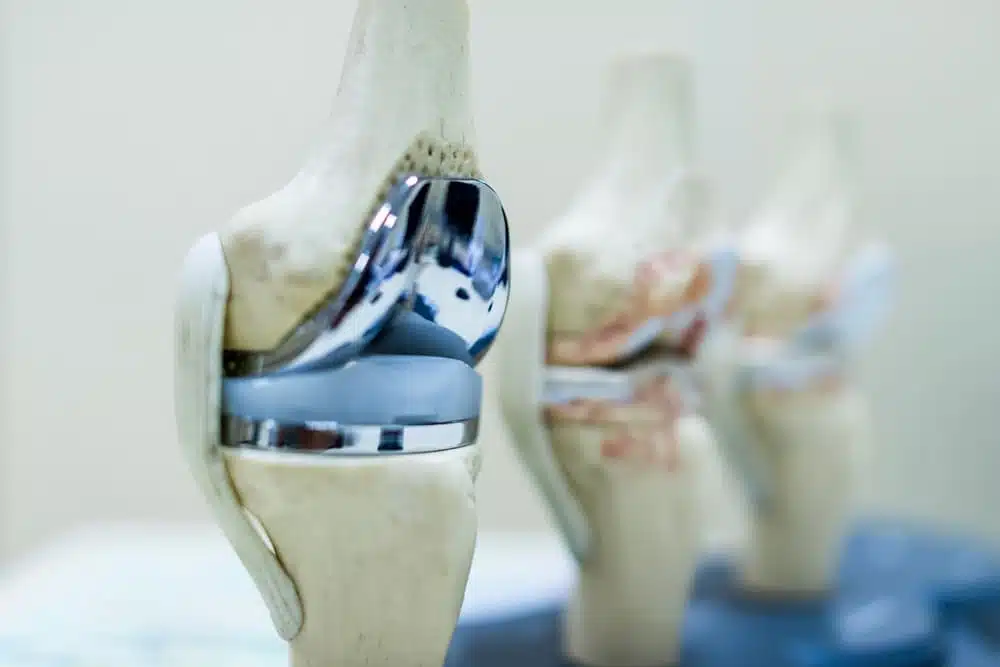Medical devices aim to improve health, extend life, and relieve individuals living with chronic or acute conditions. Patients use these products with the expectation of being tested and proven safe. Unfortunately, some defective medical devices cause life-altering injuries, create financial strain, and even lead to death. As a result, the victims of the devices have filed thousands of lawsuits to hold the manufacturers accountable and secure financial recovery for their losses.
However, to successfully file a defective medical device lawsuit, you must demonstrate how negligence caused harm. A skilled defective medical device lawyer can evaluate your case, gather evidence, and help you pursue the compensation you deserve. If you or a loved one believes a defective medical device caused harm, contact Ferrer Poirot Feller to learn more about how the law applies to your situation.
Quick Facts: Defective Medical Devices
- Defective medical devices have caused chronic pain, infections, repeat surgeries, and even death.
- Defective medical device lawsuits may involve design flaws, manufacturing errors, or failure to issue risk warnings.
- Liability can extend to manufacturers, distributors, testing labs, hospitals, or surgeons.
- Even if the manufacturer recalls a defective medical device, you may still recover damages for your injuries.
- Proving a case requires showing a defect, injury caused by the defect, proper use of the device, and measurable damages.
- If a defective device harmed you, speak with a lawyer to learn your options.
Examples of Defective Medical Devices

Defective medical devices span across many specialties, from orthopedics to cardiology. Some failures stem from flawed design, while others arise from inadequate testing, poor manufacturing quality, or misleading marketing. The issues related to medical device failure can be severe, including:
- Chronic pain
- Internal injuries
- Need for additional surgeries.
- Loss of mobility
- Infections
- Death in some cases
Below are some of the most commonly litigated devices that have caused widespread harm.
Hip Replacement Implants
Hip implants restore mobility and reduce pain in patients with degenerative joint conditions. However, several models, particularly metal-on-metal devices, have failed prematurely, releasing toxic metal particles into the bloodstream and surrounding tissue. Patients reported severe pain, tissue damage, infections, and the need for multiple revision surgeries. Some manufacturers have recalled these devices, but not before thousands of people suffered debilitating injuries.
Knee Replacement Implants
Knee implants typically last 15 to 20 years, but many defective models fail after a few years. Design flaws or loosening components can cause instability, chronic pain, or the inability to walk without assistance. Some require revision surgery, which carries risks and a significant recovery time. Patients who underwent these procedures often assume they will regain function, only to find themselves in a worse condition.
Hernia Mesh
Surgeons have widely used hernia mesh in repairs, but some manufacturers rushed certain brands to market without adequate testing. Defects such as mesh erosion, migration, or adhesion to internal organs have led to complications including chronic pain, infections, bowel obstruction, and repeat surgeries. Many lawsuits claim manufacturers failed to warn doctors and patients about the risks, leaving individuals unprepared for the potential consequences.
Transvaginal Mesh
This device treats pelvic organ prolapse and urinary incontinence. However, transvaginal mesh devices have caused some of the most painful complications seen in defective device litigation. Women have reported erosion of the mesh into surrounding tissue, nerve damage, chronic pelvic pain, and painful intercourse. Many patients required multiple corrective surgeries, yet some injuries remain permanent. The severity of these complications has prompted widespread litigation and significant settlements.
IVC Blood Clot Filters
Manufacturers developed inferior vena cava (IVC) filters to catch blood clots before they reach the lungs, but many filters fractured or migrated within the body. Broken fragments can puncture organs or veins, creating life-threatening complications. The FDA issued multiple warnings about these risks, yet defective models remained on the market for years. Patients who received them have faced ongoing monitoring and, in some cases, emergency surgeries to remove fragments.
Breast Implants
Breast implants, particularly textured varieties, have been associated with a rare but serious cancer known as breast implant-associated anaplastic large cell lymphoma (BIA-ALCL). Other reported complications include rupture, capsular contracture, chronic pain, and autoimmune-like symptoms.
Many women experience emotional distress and require repeated reconstructive procedures in addition to physical injuries. Litigation has focused on manufacturers’ failure to provide adequate warnings and their marketing practices downplaying the risks.
Defibrillators and Pacemakers
Devices meant to regulate or restart a patient’s heartbeat must perform reliably. Unfortunately, defective batteries, faulty wiring, or programming errors in certain defibrillators and pacemakers prevented them from functioning during emergencies. In some cases, devices delivered unnecessary shocks or failed to activate when patients were in distress, leading to tragic outcomes. The consequences of such defects highlight how device reliability can mean the difference between life and death.
Insulin Pumps
Insulin pumps provide continuous insulin delivery for individuals managing diabetes, but defective pumps have malfunctioned by delivering too much or insufficient insulin. These errors can cause life-threatening hypoglycemia or uncontrolled hyperglycemia. Inaccurate readings, battery failures, and software glitches have caused injuries and hospitalizations. For patients who rely on pumps for daily management, a defect undermines their health and confidence in life-sustaining technology.
Who Can Be Held Liable?
When a medical device causes harm, the responsibility does not always fall on a single party. Multiple entities are involved in the design, production, distribution, and use of these products, and each may bear legal accountability depending on how the defect occurred. Defective medical device attorneys at Ferrer Poirot Feller have helped many people evaluate liability and know where to direct a claim. Here are some potential liable parties in a defective medical device claim:
Device Manufacturers
Manufacturers are most commonly named in lawsuits because they are responsible for medical device design, production, and marketing. The manufacturer may be liable if a device has a design flaw, is manufactured with poor-quality materials, or is marketed without adequate warnings. In many cases, plaintiffs argue that manufacturers knew of the risks yet prioritized sales over safety.
Testing Laboratories
Before medical devices reach the market, they should undergo rigorous testing. Independent laboratories sometimes conduct these evaluations on behalf of manufacturers. If these labs perform inadequate testing, overlook safety concerns, or certify a defective product as safe, they can share responsibility for the harm patients experience. Their role matters because patients depend on accurate safety testing before implanting a device.
Sales Representatives and Distributors
Medical device companies often use sales representatives and distributors to promote their products to hospitals and doctors. If a representative makes misleading claims about a device’s safety or performance, or if a distributor continues to sell products after safety warnings or recalls, they may be legally accountable. Their direct contact with healthcare providers places them in a position of influence, and misinformation at this stage can have serious consequences for patients.
Hospitals and Surgeons
Hospitals and surgeons can also face liability in some cases. For example, a hospital may be responsible for knowingly using recalled devices or ignoring proper sterilization and handling protocols. Surgeons may be accountable if they implanted a device in a way that deviated from accepted medical standards or ignored known safety alerts. While most claims target manufacturers, hospitals and doctors face scrutiny when patients suffer harm.
Types of Defective Device Claims
Patients affected by defective medical devices can bring a claim under several primary legal theories. The type of claim depends on how the defect occurred and what the company or other parties failed to do. A defective medical device lawyer can explain the categories and outline the evidence to support a lawsuit. Here are some types of claims you may initiate in a product liability lawsuit:
Design Defect Claims
A design defect means the device was inherently unsafe from the start. Its design creates unreasonable risks even when manufactured correctly and used as intended. For example, some hip implants included metal-on-metal components that leaked toxic metal ions into the body, causing severe tissue damage. In these cases, the blueprint causes the issue, not how the manufacturer produces the product.
Manufacturing Defect Claims
Sometimes a device’s design is sound, but mistakes during production render it unsafe. Manufacturing defects may involve using substandard materials, contamination during assembly, or errors that lead to faulty wiring or structural weaknesses. A defective batch can harm thousands of patients, making these claims particularly significant.
Failure to Warn (Marketing Defects) Claims
Manufacturers must warn doctors and patients about known risks and complications. Patients cannot make informed choices if they fail to provide adequate instructions for safe use or downplay serious side effects. For instance, manufacturers marketed certain mesh implants as safe and minimally invasive, but lawsuits later alleged they failed to disclose high rates of erosion and chronic pain.
Negligence and Misrepresentation
Beyond specific product defects, companies may face claims of negligence or misrepresentation. This can involve rushing a device to market without adequate testing, ignoring reports of adverse events, or making false claims about safety and effectiveness. Patients rely heavily on accurate information when making healthcare decisions, so misleading representations can form the basis of a strong legal claim.
How Do I Know I Have a Defective Medical Device Case?

Not every complication linked to a medical device automatically leads to a lawsuit. To bring a valid claim, certain legal elements generally must be present. Courts use these standards to separate cases caused by ordinary medical risks from those caused by unsafe or improperly marketed products. These include proving the following:
- The device had a flaw in its design, manufacturing, or labeling. This can mean the product was unsafe from the start, was made incorrectly, or lacked proper warnings about its dangers.
- The defect directly caused your injury. For example, if a knee replacement implant fails and fractures inside the body, the injury can be traced directly to the device.
- You followed your surgeon’s guidance, but the device still failed.
- You suffered actual physical injuries, emotional struggles, or financial losses.
When these factors align, you may have grounds to pursue a defective device claim. Because these cases depend heavily on medical records, professional testimony, and product data, speaking with an attorney who understands medical device litigation can help determine whether your situation meets these requirements.
Frequently Asked Questions About Defective Medical Devices
Speak With a Defective Medical Device Attorney Today

If you or a loved one has suffered harm from a defective medical device, you have legal grounds to seek answers from the responsible parties. However, these cases require careful investigation to take legal action against large corporations. A defective medical device attorney at Ferrer Poirot Feller can review your medical history, evaluate the device involved, and explain your options for pursuing compensation. Call us at (214) 521-4412 or contact us online today to book a confidential case evaluation. We take no legal fees until your case wins a settlement or verdict.
